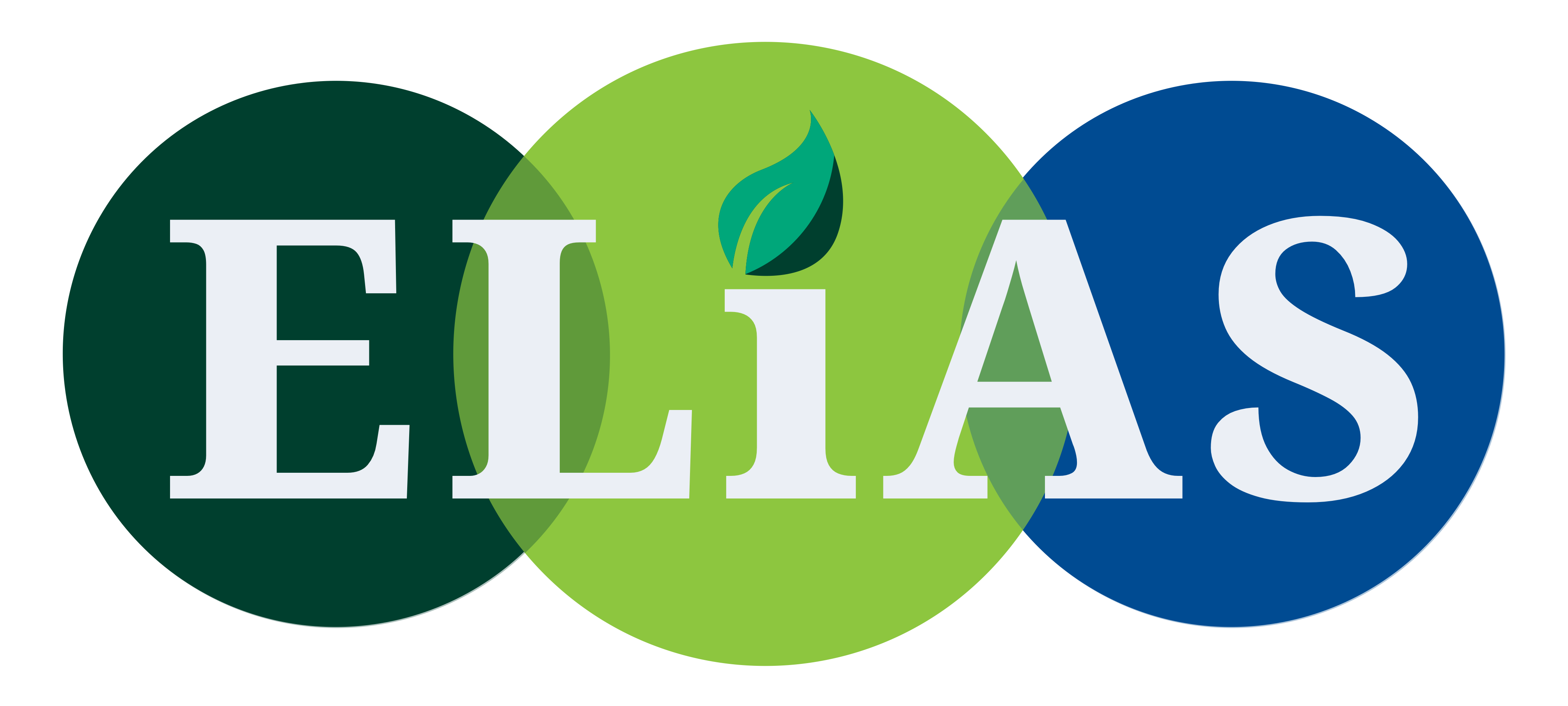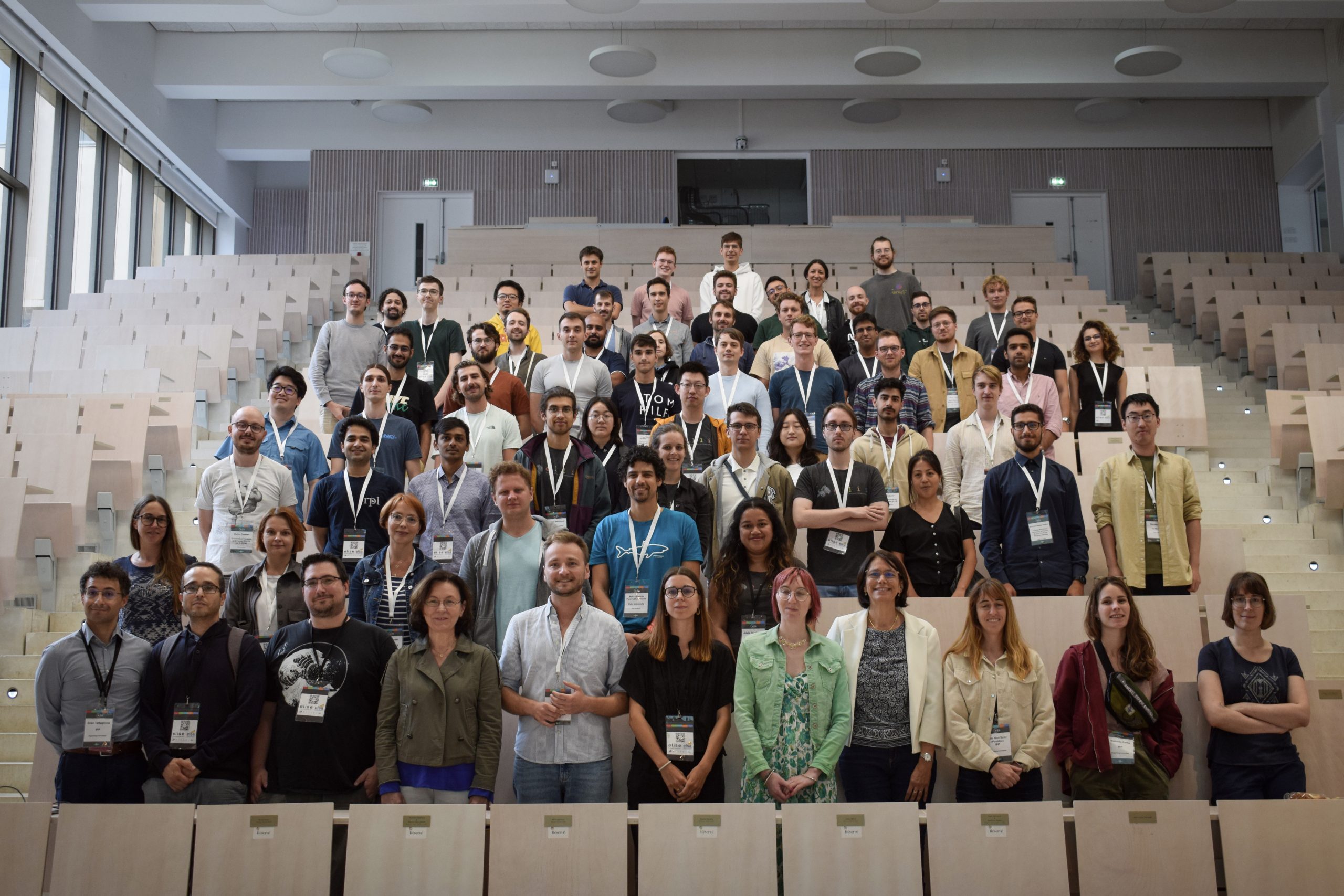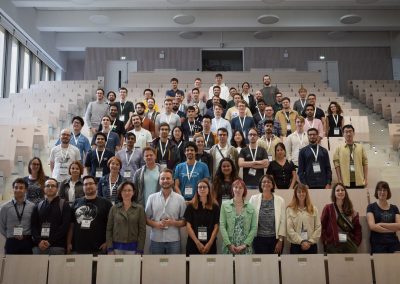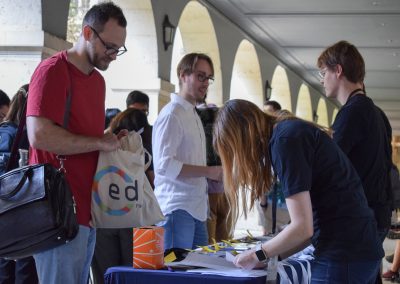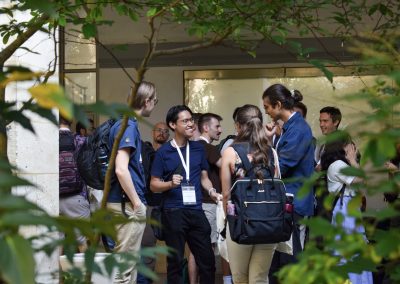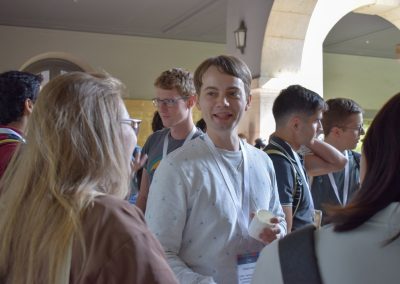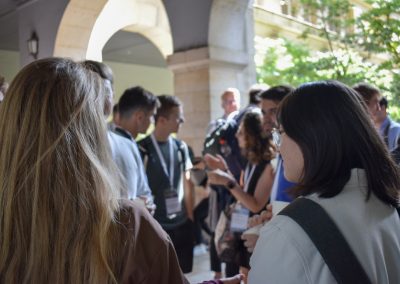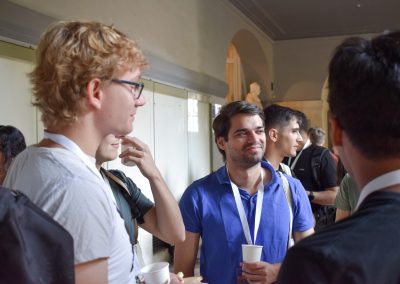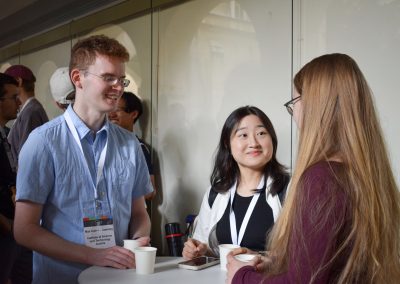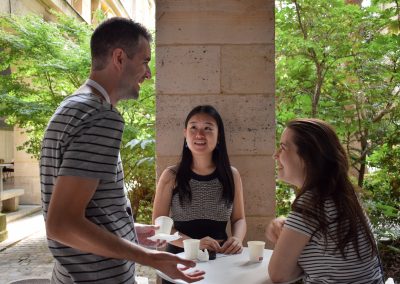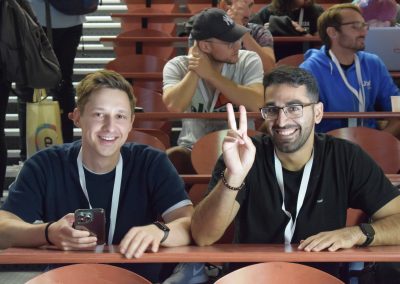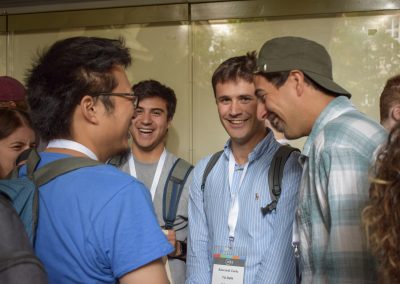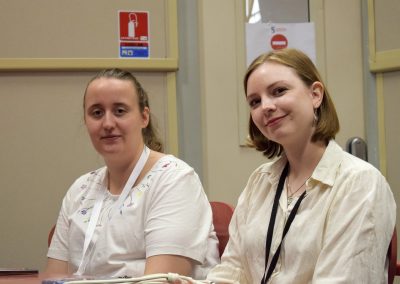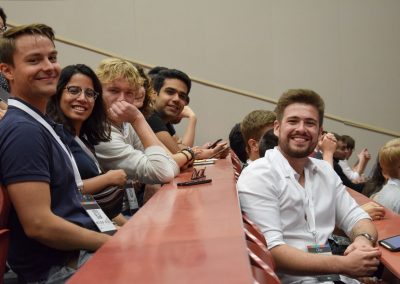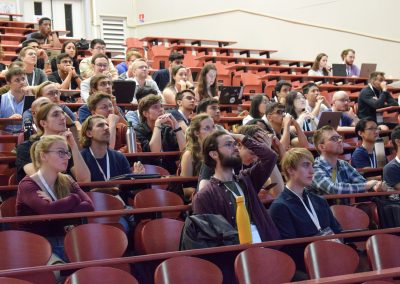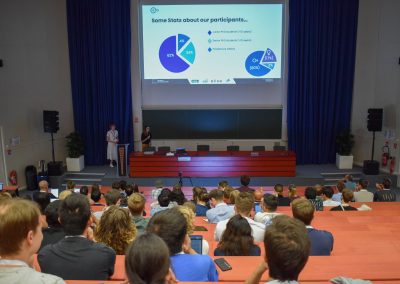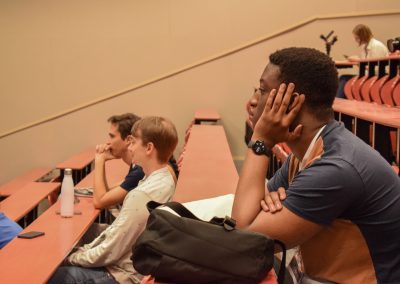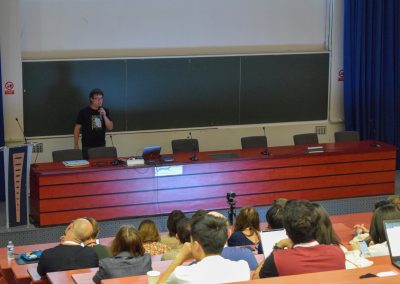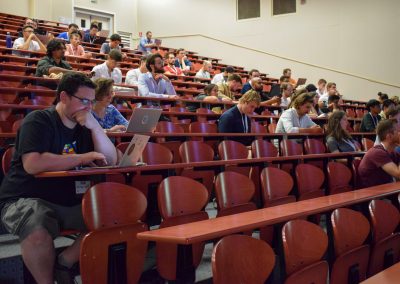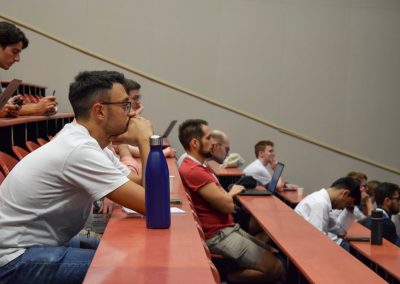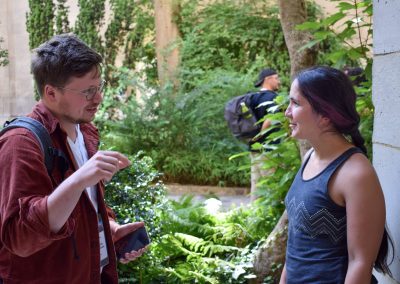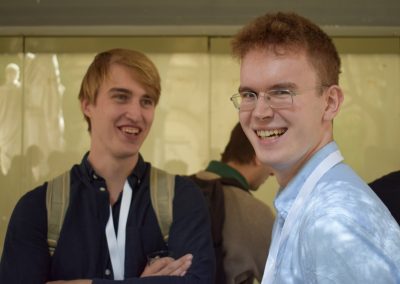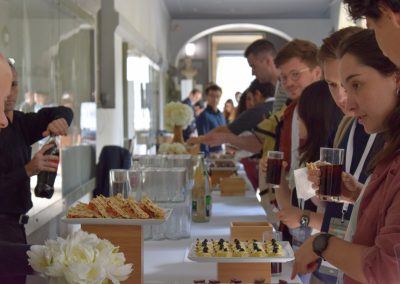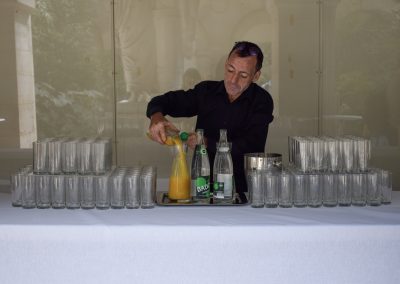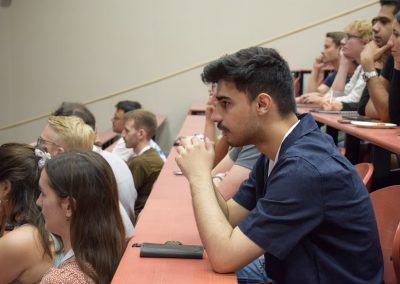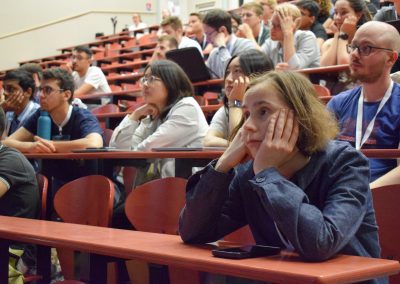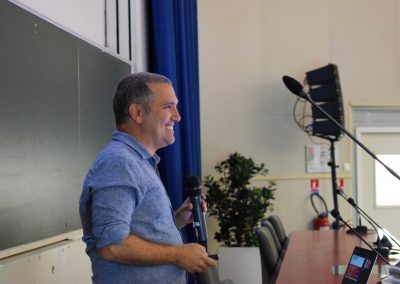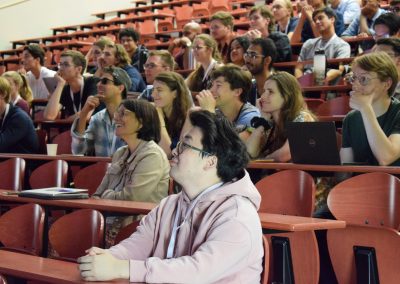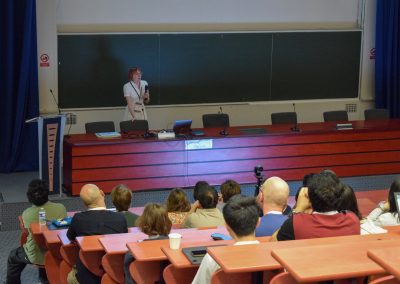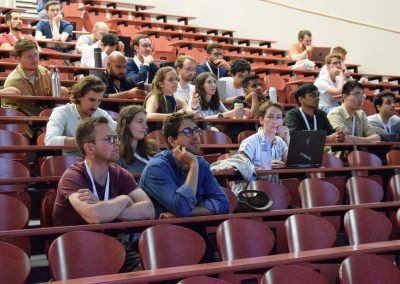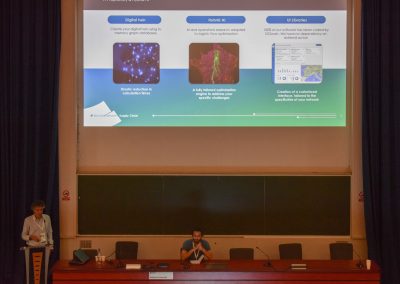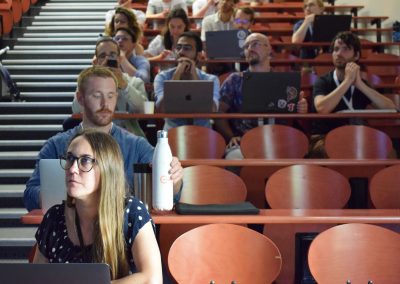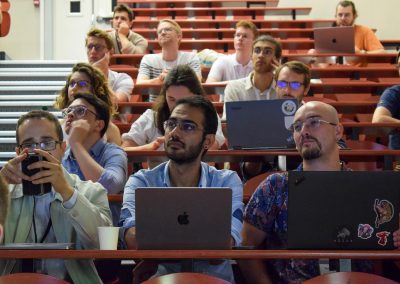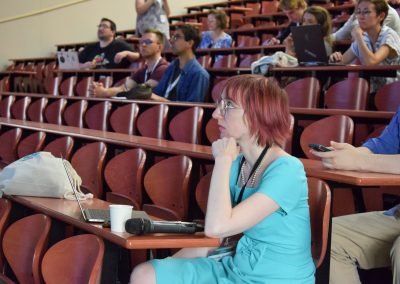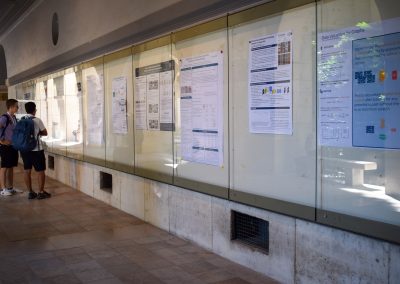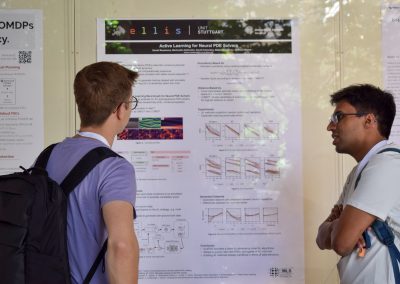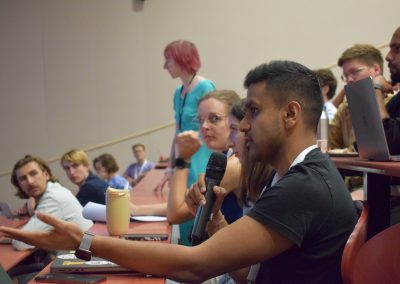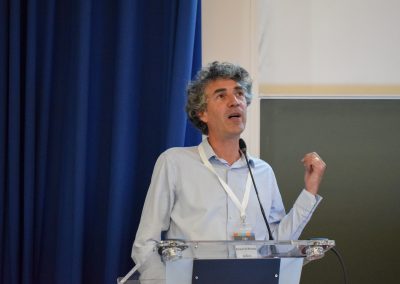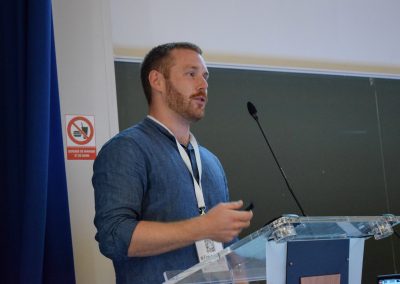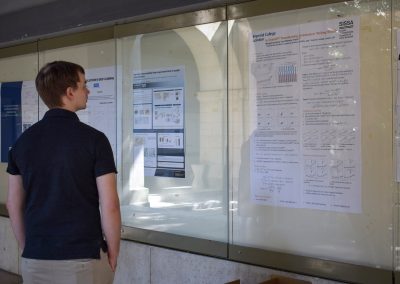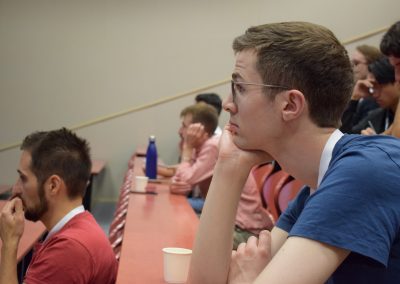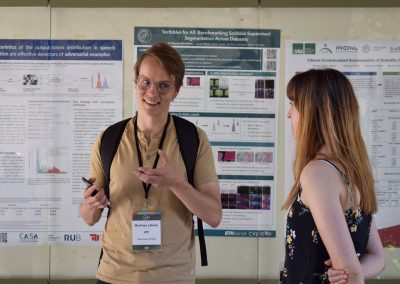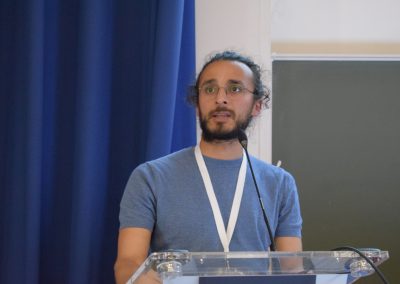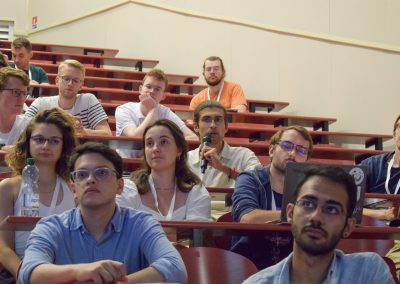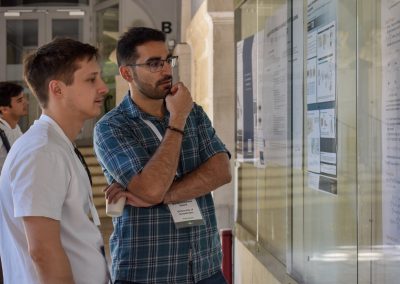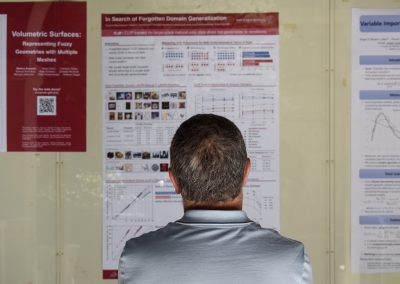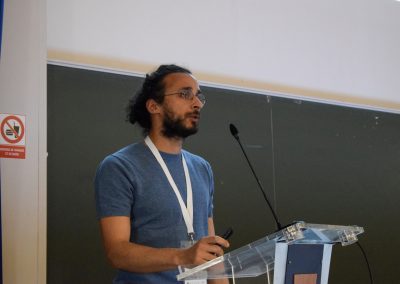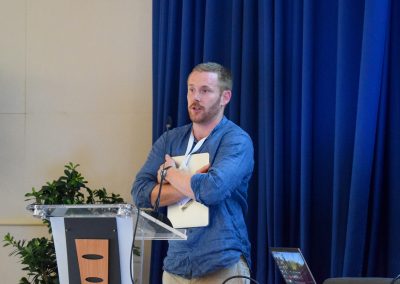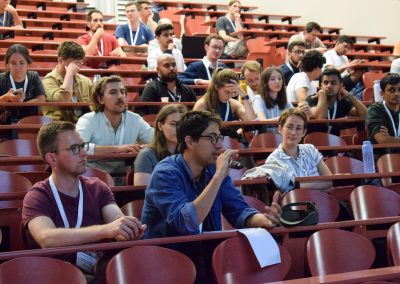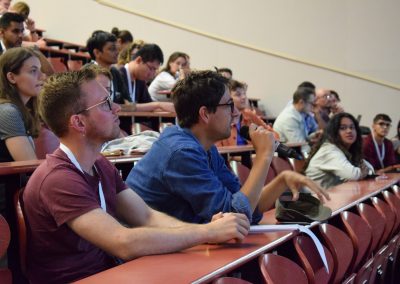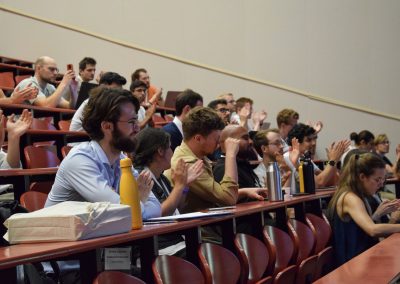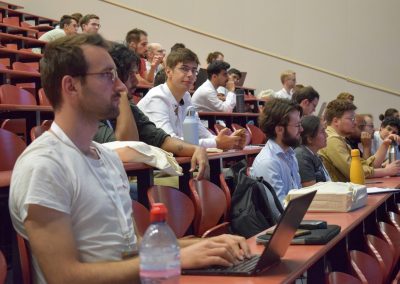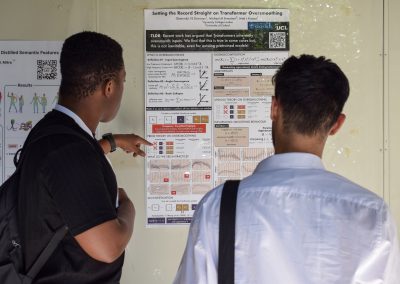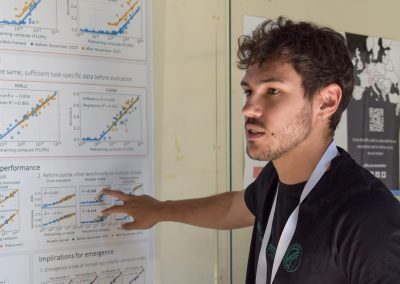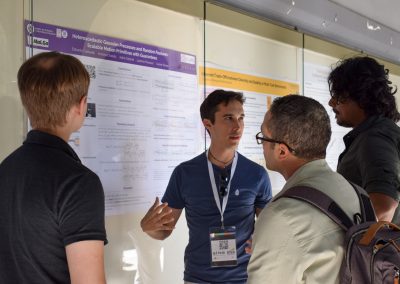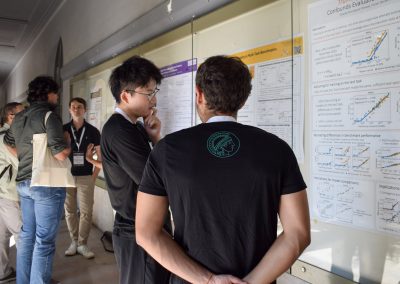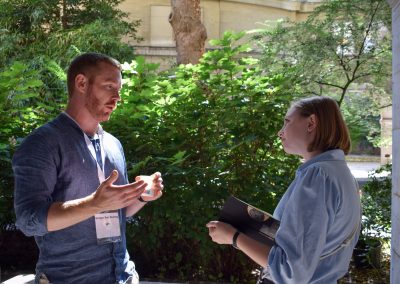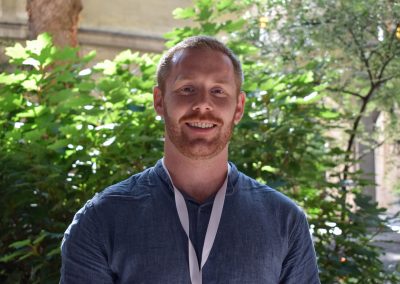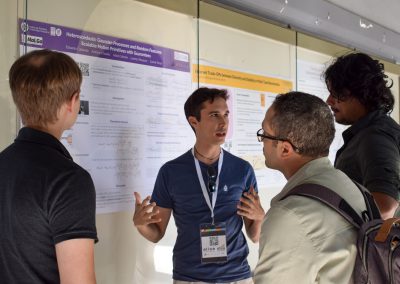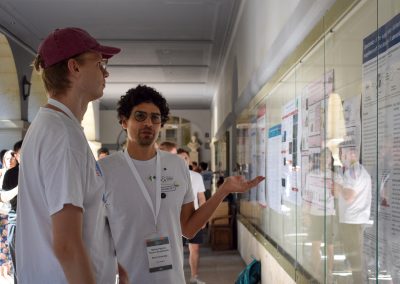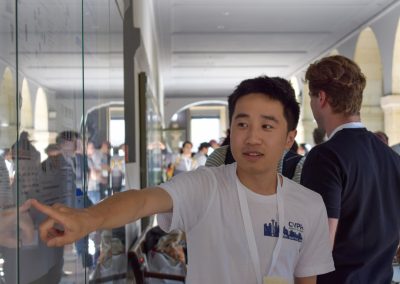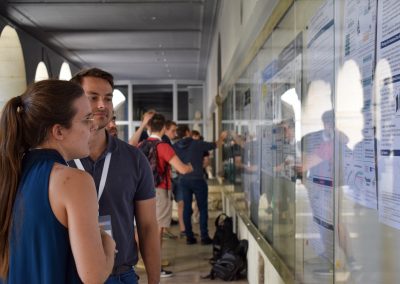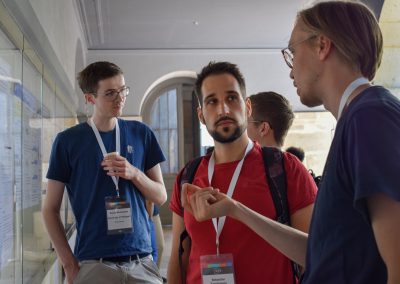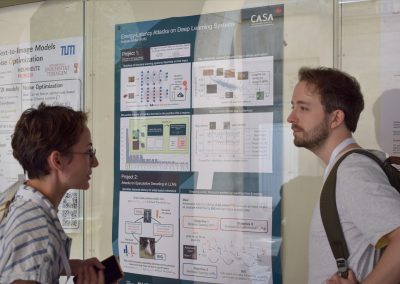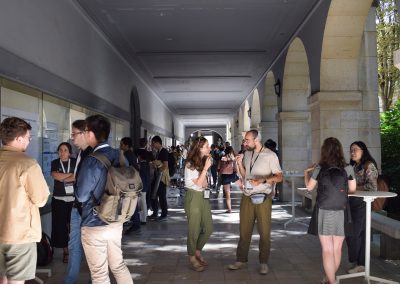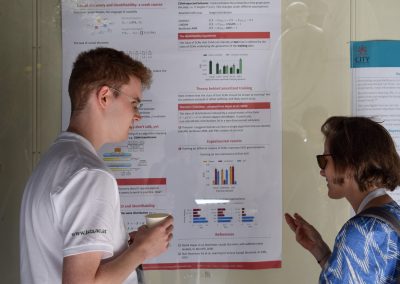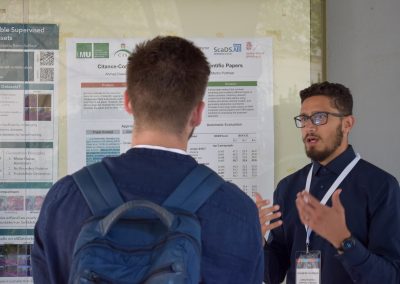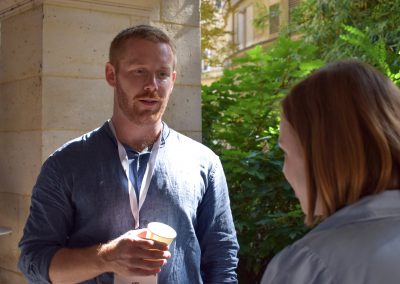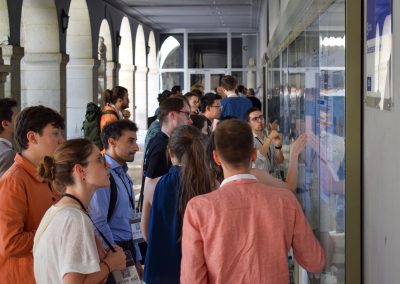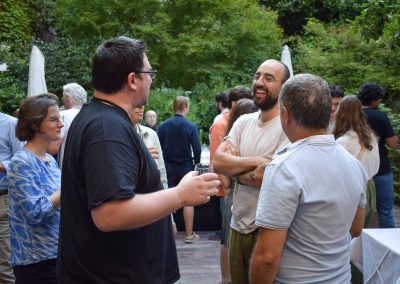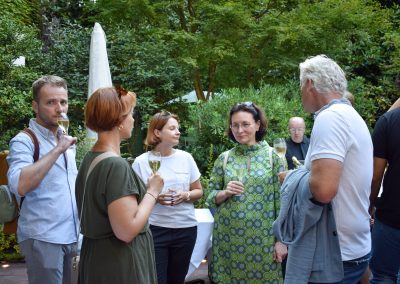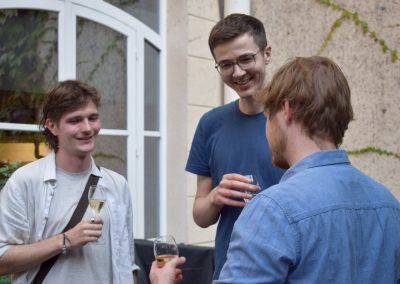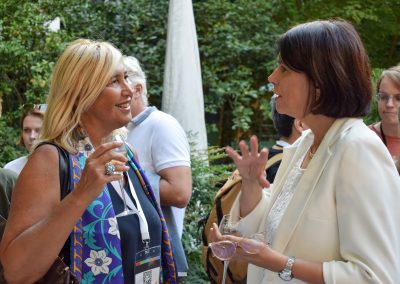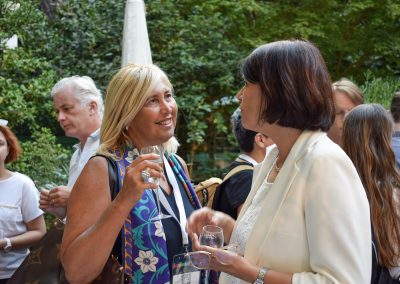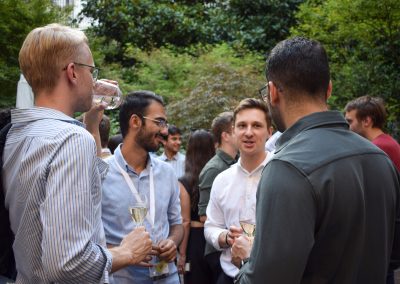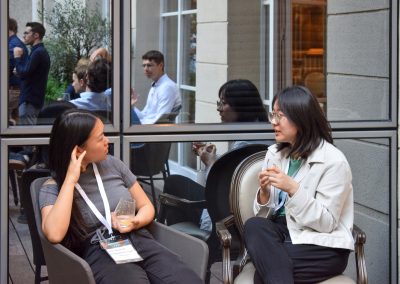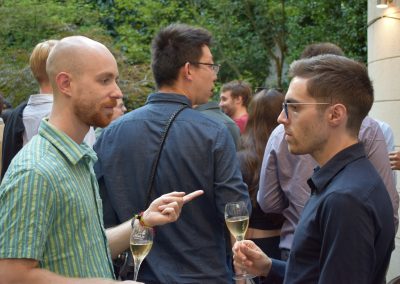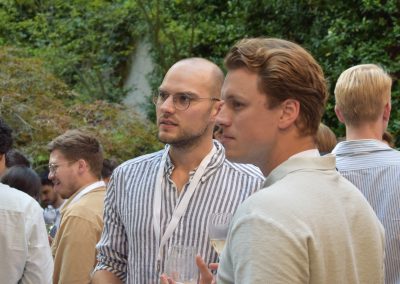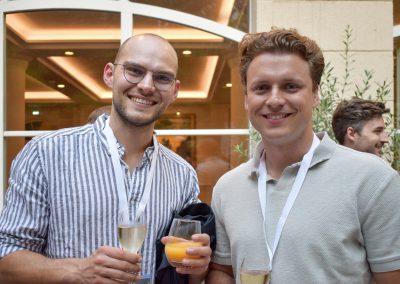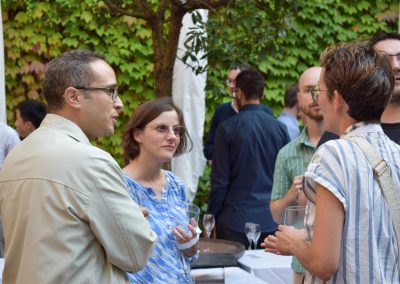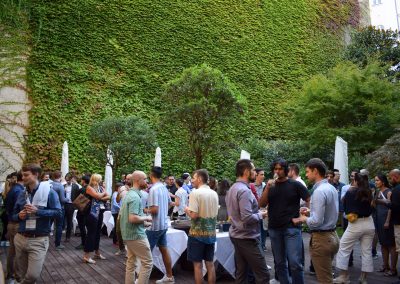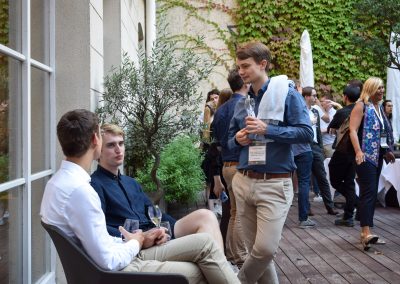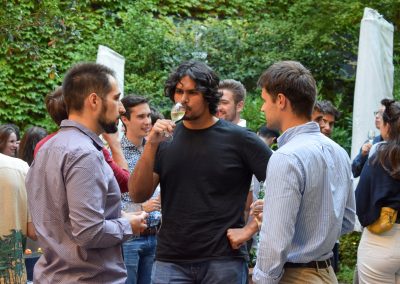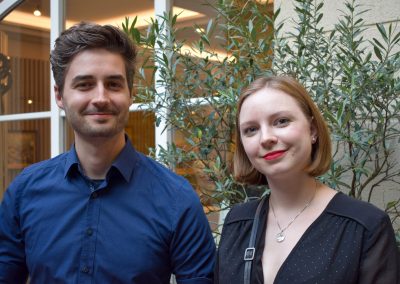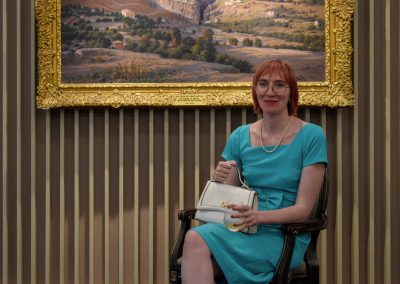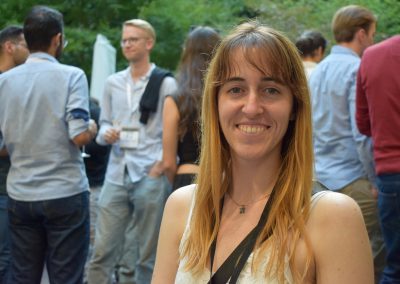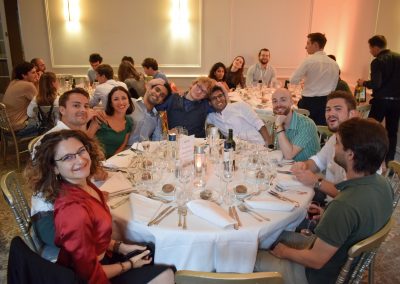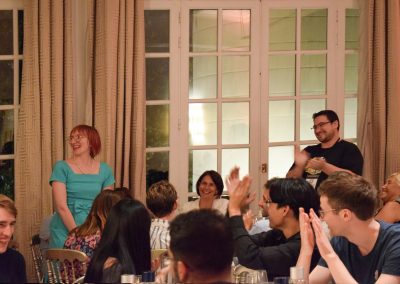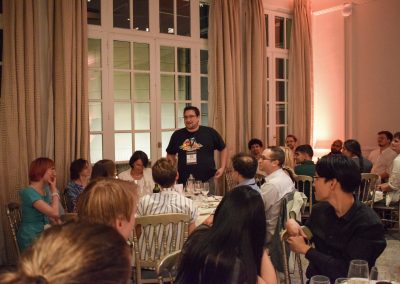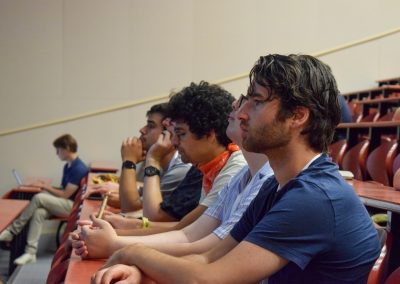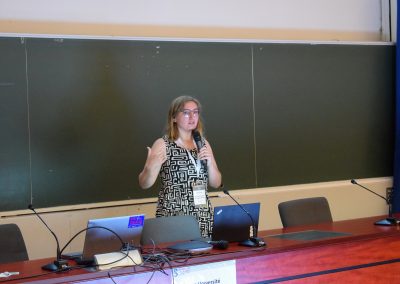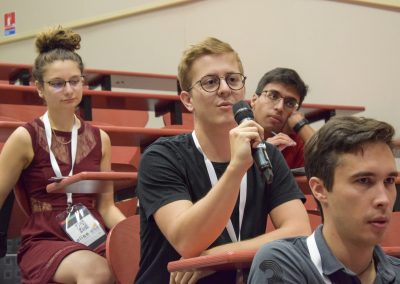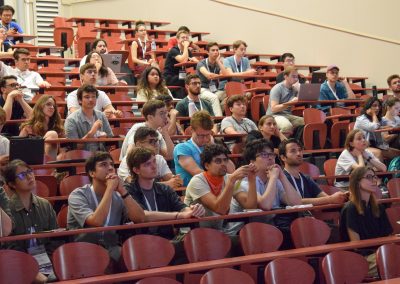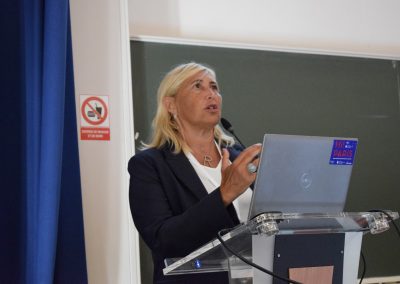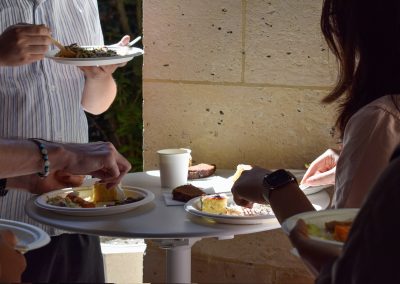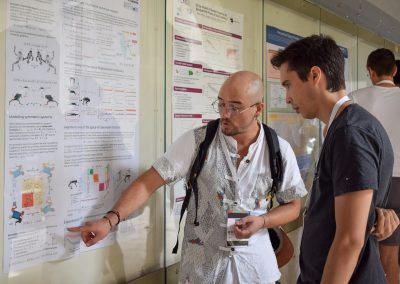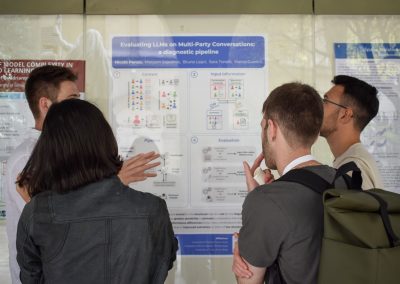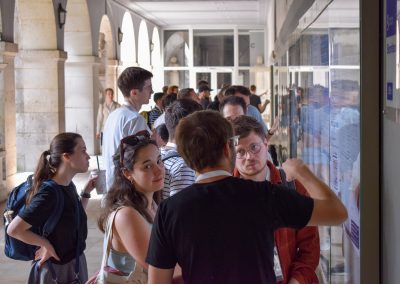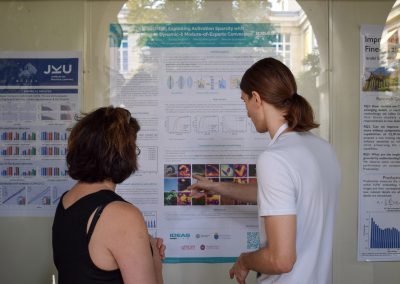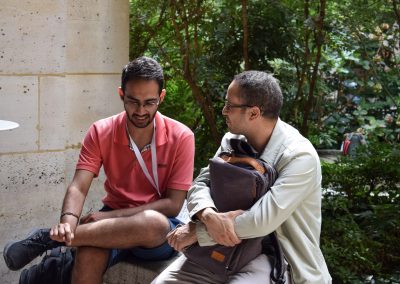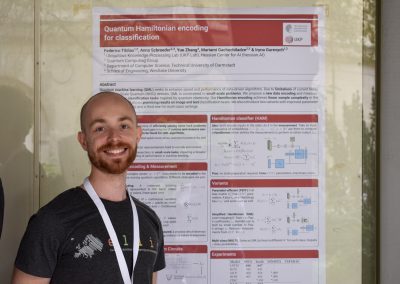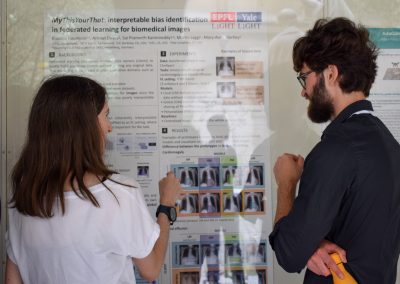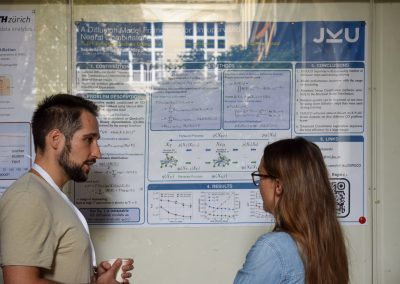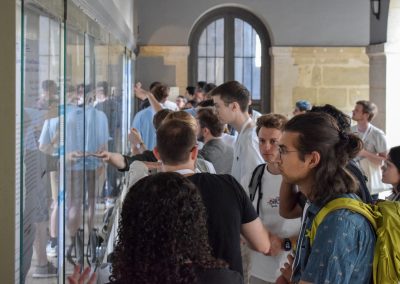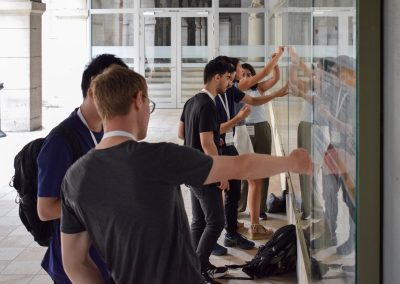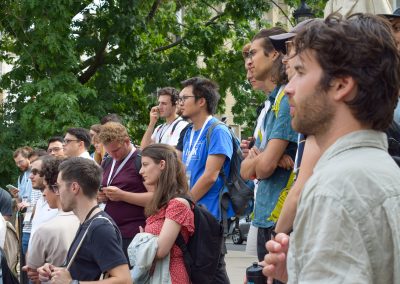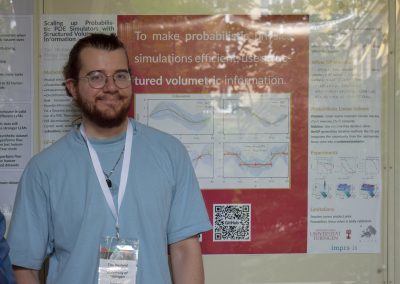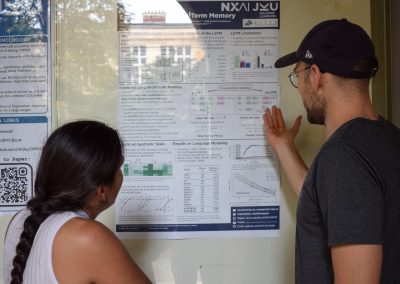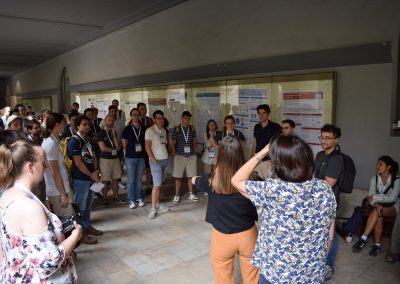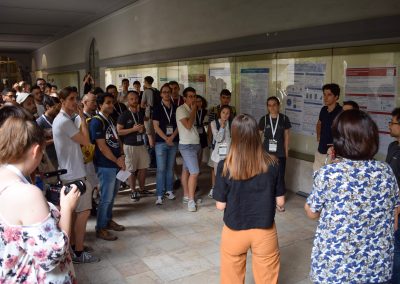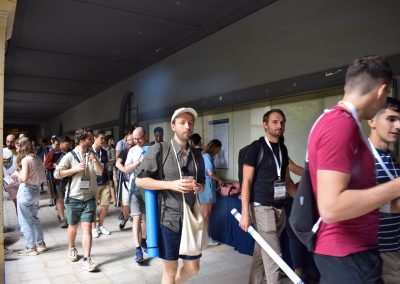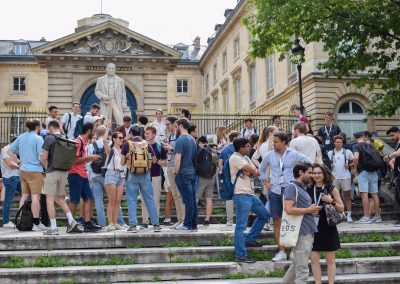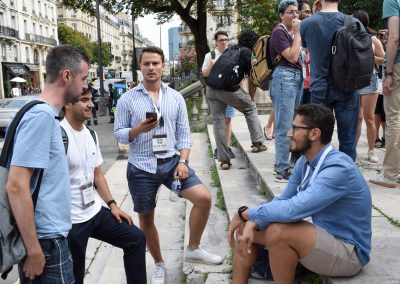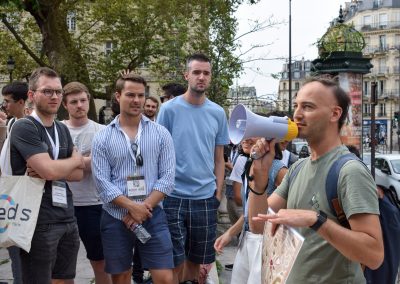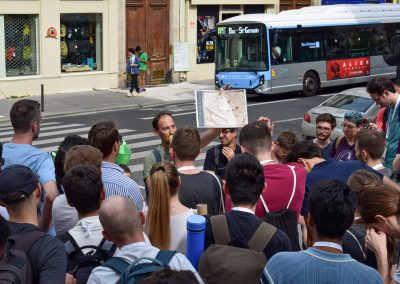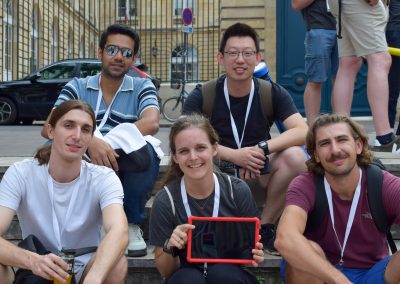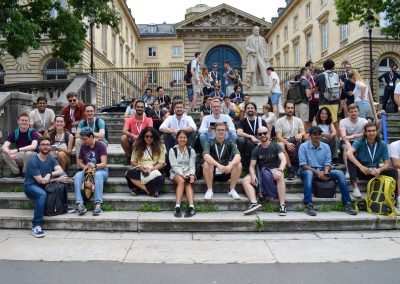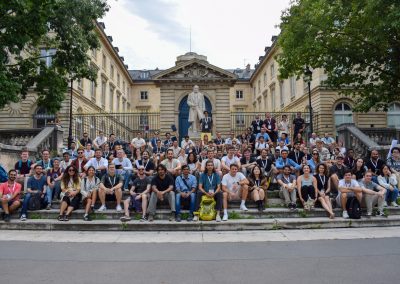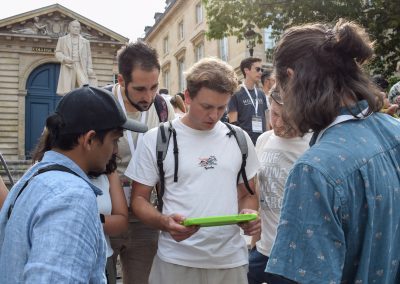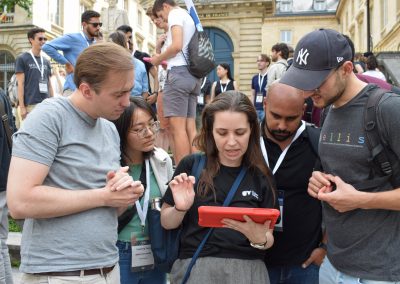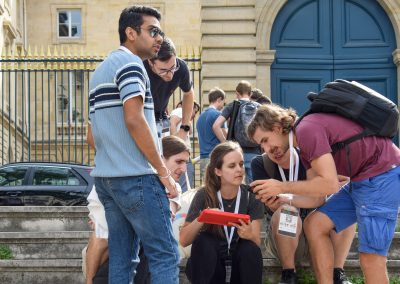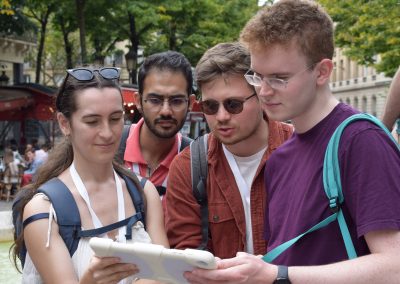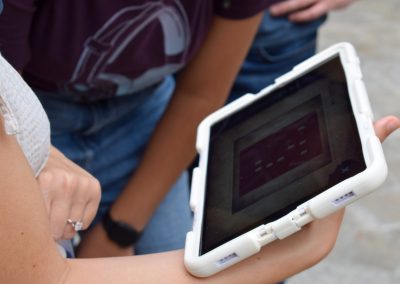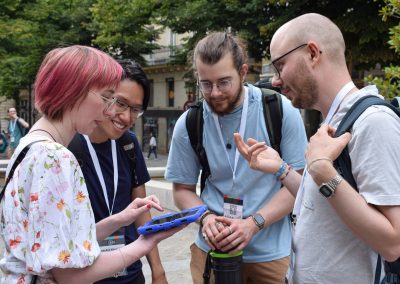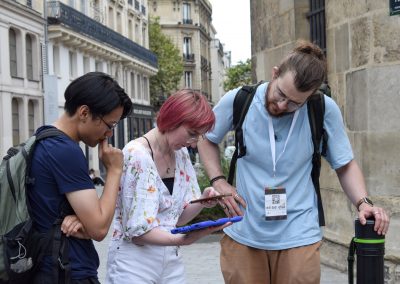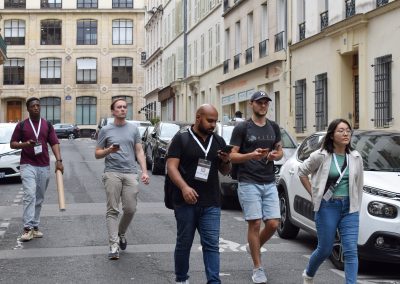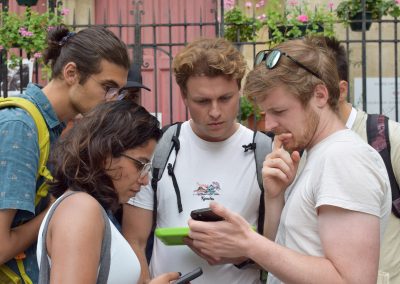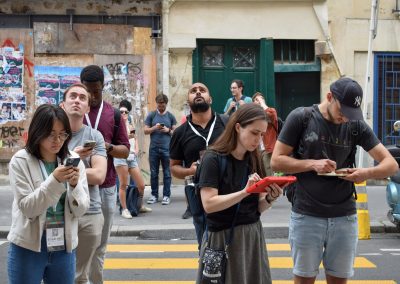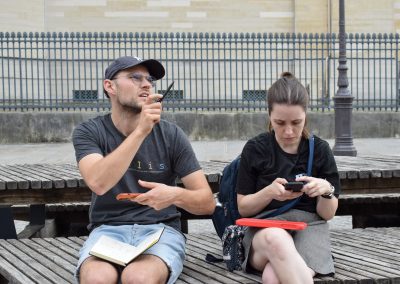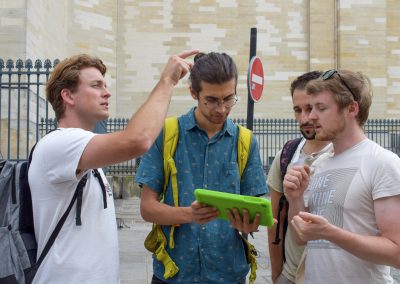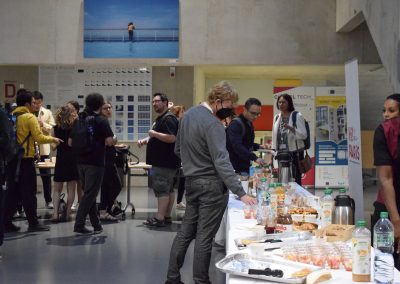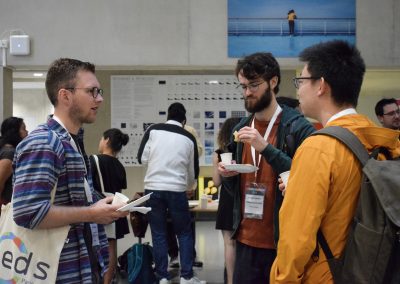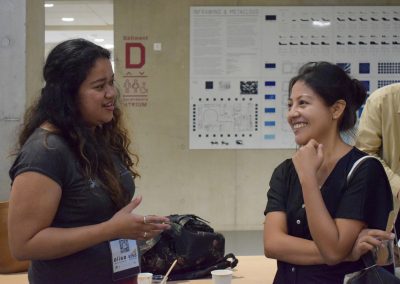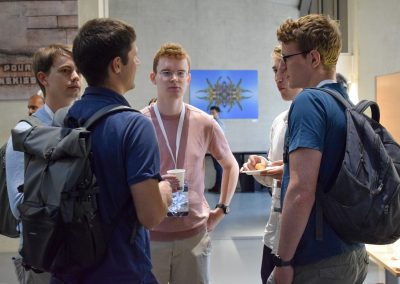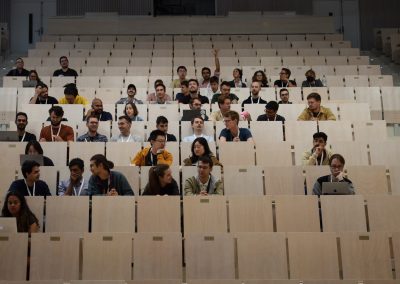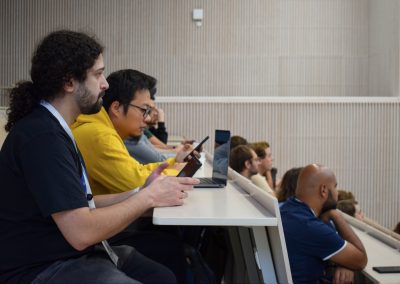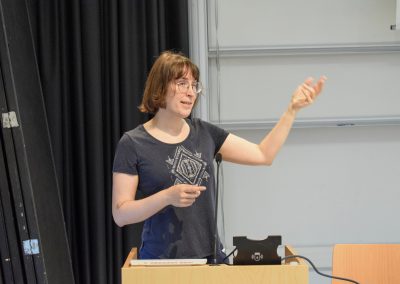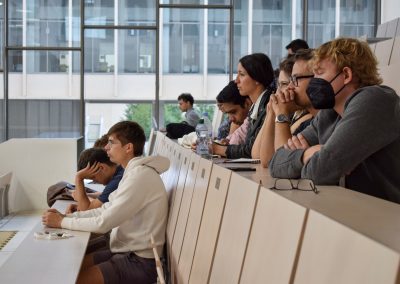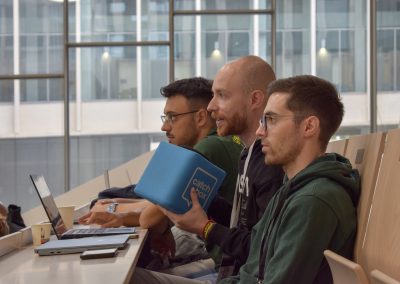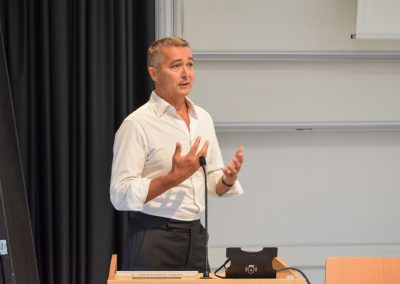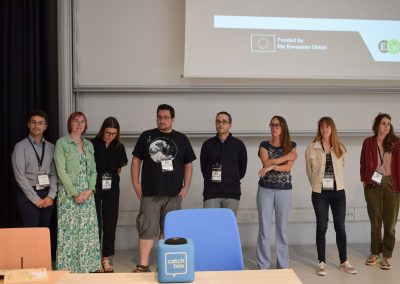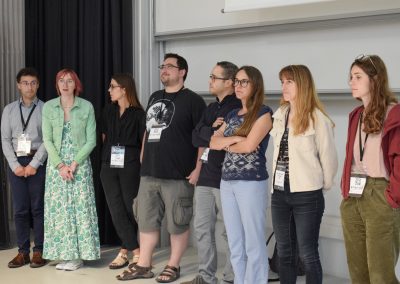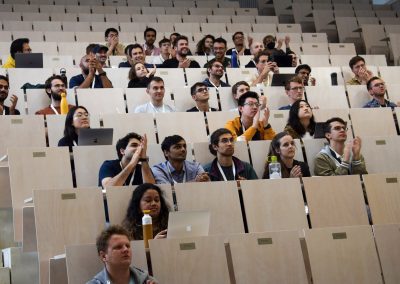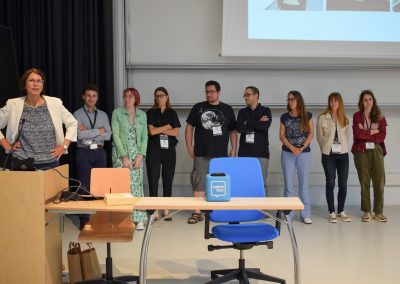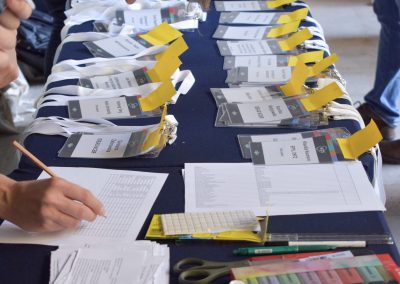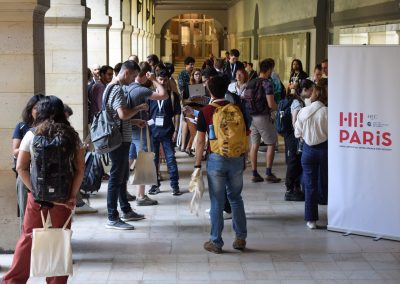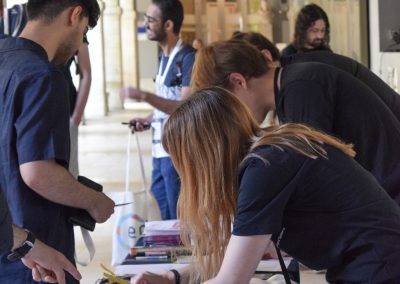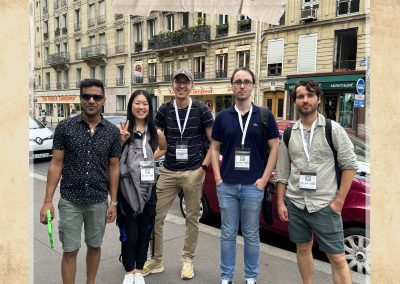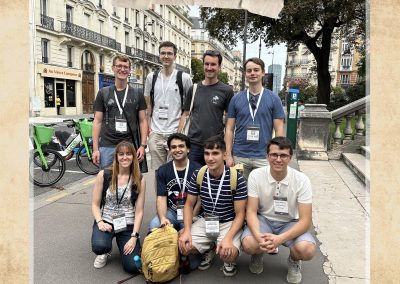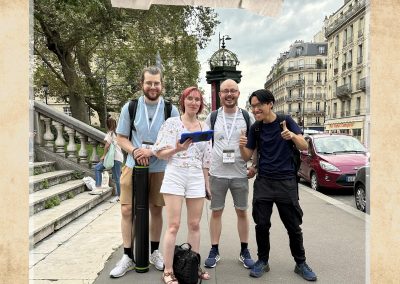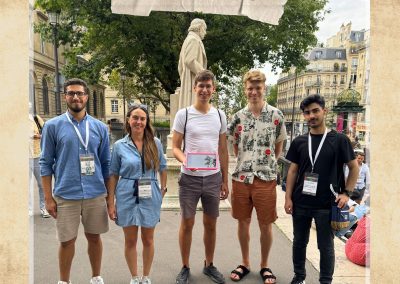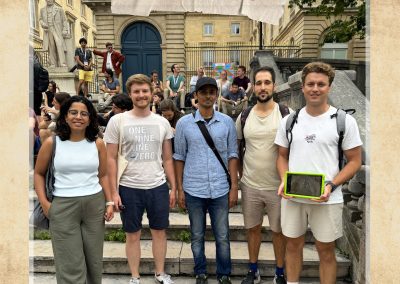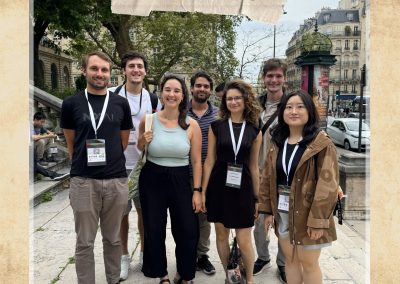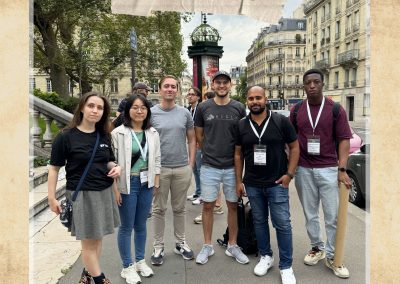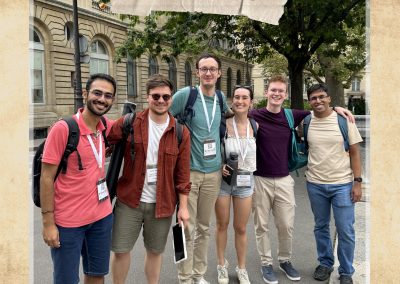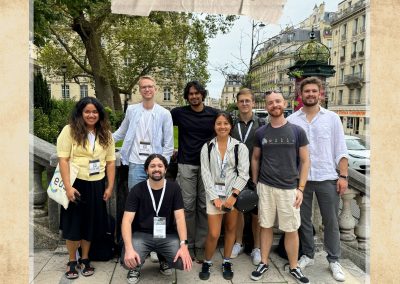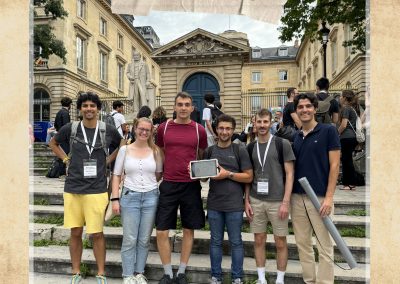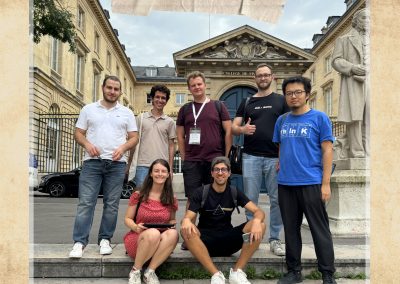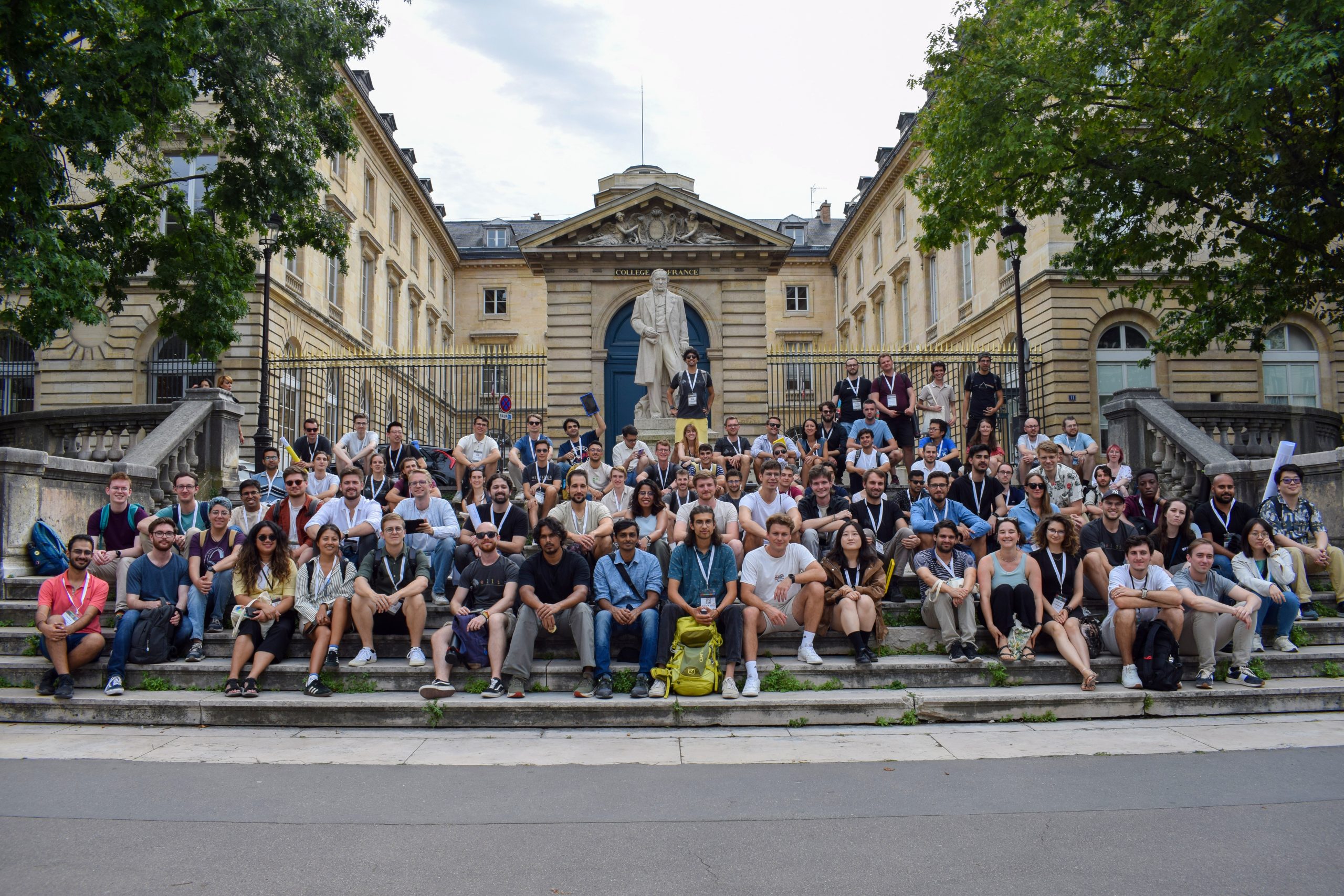
Over 100 PhD students from across Europe gather in Paris for this year’s ELLIS Doctoral Symposium
Five days of networking and insightful exchanges on the latest machine learning research: Paris was the location of this year’s ELLIS Doctoral Symposium (EDS) under the theme of ‘AI and Sustainability’. More than 100 PhD students from institutions all over Europe gathered in the French capital for a vibrant conference featuring keynotes by top AI experts, poster sessions, an industry fair and numerous opportunities to exchange ideas and discuss each other’s research.
The EDS is an annual conference for ELLIS PhD students and other PhD students, and the highlight among the many training activities in the ELLIS PhD Program. It brings together numerous young researchers from all over Europe representing different disciplines related to machine learning. This year’s event was hosted by the Institut Polytechnique de Paris at the campus “Les Cordeliers” (Sorbonne University), where top AI researchers from academia and industry enriched the program with keynote lectures. Among them were Rita Cucchiara (Universitá degli Studi di Modena e Reggio Emilia and Head of the ELLIS Unit Modena), Devis Tuia (EPFL), Gaël Varoquaux (Inria Saclay), David Rolnick (McGill University and Mila – Quebec AI Institute), Caroline Therwath-Chavier (The Allyance), and Tiphaine Viard (Telecom Paris).
An industry fair and social events facilitated intense exchanges
The ELLIS PhD and Postdoc Program features several tracks, one of which promotes collaboration with an industry partner (Industry Track). Students partaking in this track aim to pursue a career in industry or entrepreneurship after they obtain their PhD degree. To that end, the EDS offers an industry fair to give those students – or any student interested in the industrial sector – the opportunity to exchange with industry representatives or learn more about what it takes to be an entrepreneur. Companies such as G-Research and Novartis joined the event again after attending the previous edition (EDS23 Helsinki), while local organisations (JustAI, AIForensics) were keen to take part in an ELLIS event for the first time.
The EDS participants not only had the opportunity to engage with each other, senior scientists and industry experts through lectures, the fair, and poster sessions. Additionally, social events such as a treasure hunt or a gala dinner (at Salons de l’hôtel des arts et métiers) provided ample time for making new connections and sharing experiences in a relaxed setting.
One of the attendees of this year’s EDS was ELLIS PhD student Jan Schneider from the Max Planck Institute for Intelligent Systems in Germany. He highlighted the network character of ELLIS in a positive light and envisions using his PhD to improve the world by developing robots that support humans.
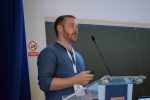 This year’s EDS theme ‘AI and Sustainability’ is closely tied to the EU-funded ELIAS project, which supported the organisation of the event. ELIAS, a consortium of 34 partners, aims to position Europe as a leader in Artificial Intelligence research that drives sustainable innovation and economic development. Researchers from the ELIAS community took part in the event and presented their work: Gregor von Dulong, one of the experts who joined the entrepreneurship session, is a Venture Architect at the Hasso Plattner Institute in Potsdam, Germany, and highlighted the project’s impact:
This year’s EDS theme ‘AI and Sustainability’ is closely tied to the EU-funded ELIAS project, which supported the organisation of the event. ELIAS, a consortium of 34 partners, aims to position Europe as a leader in Artificial Intelligence research that drives sustainable innovation and economic development. Researchers from the ELIAS community took part in the event and presented their work: Gregor von Dulong, one of the experts who joined the entrepreneurship session, is a Venture Architect at the Hasso Plattner Institute in Potsdam, Germany, and highlighted the project’s impact:
“ELIAS offers students an amazing network, gives them access to top researchers, and fosters the European spirit of bringing people together, all while focusing on sustainability in AI research.”
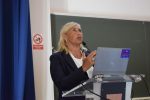 Rita Cucchiara from UNIMORE, the ELIAS Project Partner, led a discussion on “Learning, Unlearning, and Relearning” — an emerging topic that explores how machines can forget knowledge acquired during pre-training.
Rita Cucchiara from UNIMORE, the ELIAS Project Partner, led a discussion on “Learning, Unlearning, and Relearning” — an emerging topic that explores how machines can forget knowledge acquired during pre-training.
“Unlearning not only challenges how we remove unwanted concepts in AI but raises ethical and sustainability concerns. Do we trust AI systems if they can be made to forget? Is it better to retrain from scratch or modify after training?”
She referenced new research from the ELLIS Unit in Modena on unlearning toxicity in multimodal LLMs. This debate emphasised the link between technical AI expertise and social responsibility.
Other notable ELIAS speakers included Claire Robin from MPG (EarthNet: Bringing biogeoscience and machine learning together), and Gaël Varoquaux from INRIA (AI from tabular data to healthcare and society).
Award for the best poster
During the event, an award was given to PhD students that presented an outstanding poster at the conference. The winners of the ‘best poster award’ are Simone Antonelli from CISPA Helmholtz Center for Information Security (Data valuation for graphs), and Sebastian Sanokowski from Johannes Kepler Universität Linz (A diffusion model framework for unsupervised neural combinatorial optimisation).
ELLIS Doctoral Symposium 2025 will take place at the ELLIS Unit in Warsaw
As this year’s EDS has come to a successful close, plans for next year are already in motion. The ELLIS Doctoral Symposium 2025 with the theme “Robust AI” will take place in Poland. It will be organised by the ELLIS Unit Warsaw at IDEAS NCBR in partnership with the Faculty of Mathematics, Informatics and Mechanics of the University of Warsaw.
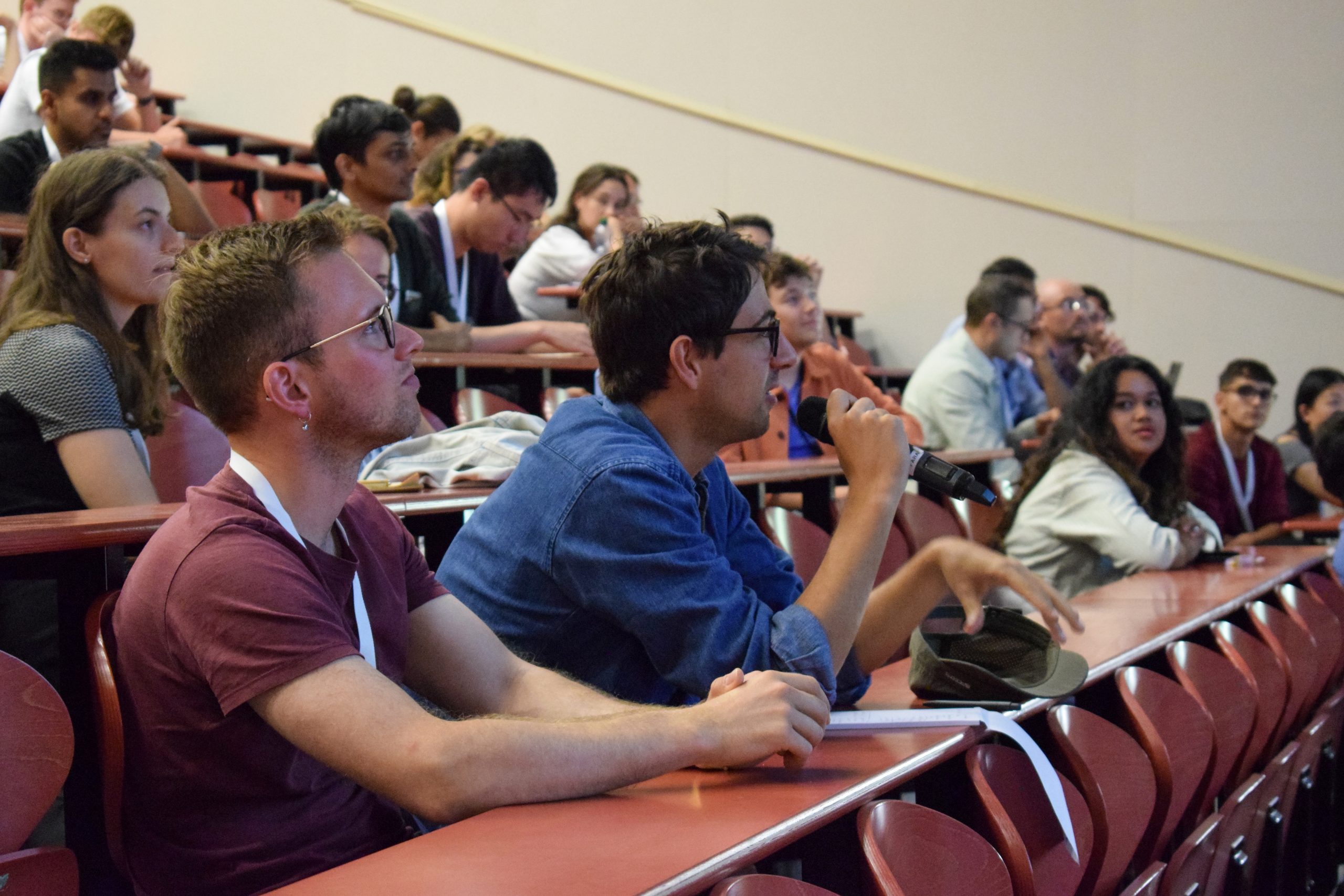
Feedback survey
The event was organised by the Institut Polytechnique de Paris (IPP) through the ELIAS project, with further support from the University of Amsterdam (ELISE), ELLIS and ELSA.
If you participated in the EDS24, we would very much appreciate your feedback here. It helps us improve each year and offer the best experience possible to the ELLIS Community.
More information
Video and more material
Image gallery: Find a gallery with impressions from the event here.
Find a recap video published by Institut Polytechnique de Paris (IPP) here.
Take a look at the material presented during the symposium: EDS 2024 Keynote Presentation & EDS 2024 Presentations
About the ELLIS PhD Program
The ELLIS PhD Program is a key pillar of the ELLIS initiative whose goal is to foster and educate the best talent in machine learning and related research areas by pairing outstanding students with leading academic and industrial researchers in Europe. Each PhD student is co-supervised by two researchers from the ELLIS community based in different countries, and conducts an exchange of at least six months with the international advisor during their degree. PhD students part of the program can choose between the academic, industry and interdisciplinary track. Research fields they have access to range from computer vision, health and robotics to machine learning theory, privacy, natural language processing, climate sciences and more. The program also offers a variety of networking and training activities, including summer schools, workshops and the annual ELLIS Doctoral Symposium. Learn more here.
Next round of applications for the ELLIS PhD Program
The ELLIS PhD Program will soon recruit again. The application portal for this year’s central recruitment will open in October 2024. Candidates from all over the world will be able to browse plenty of PhD opportunities with different advisors and institutions across Europe, and reach many top machine learning labs with just a single application. Application deadline is 15 November 2024. Find all information on how to apply in this call.
Watch the ELLIS PhD Program video and these short video testimonials recorded by some of our students across Europe to get an impression of what it’s like to be an ELLIS PhD student.
To stay up to date on the latest news about the program, follow ELLIS on X, LinkedIn, Mastodon and Facebook, and subscribe to the monthly ELLIS email newsletter.
The ELLIS PhD Program has received funding from the European Union’s Horizon 2020 research and innovation programme under ELISE Grant Agreement No. 951847 (2020 – 2024), and is continued with funding from the Horizon Europe research and innovation programme under ELIAS Grant Agreement number 101120237 (2023 – 2027). The program is also expanded by the EU-funded project ELSA under grant agreement number 101070617 (2022 – 2025).
